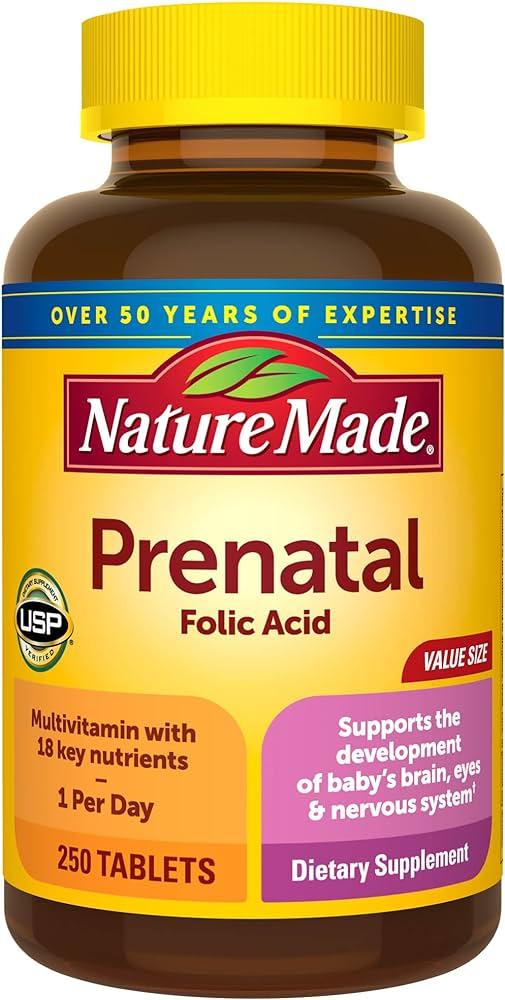In the intricate journey of pregnancy, where a new life begins to blossom, the choices made can feel monumental. Among these decisions, the role of prenatal supplements often stands as a focal point of discussion. Are these tiny capsules of nutrients a universal necessity, or do they serve a more selective purpose? As expectant parents navigate the sea of advice and recommendations, the question of whether prenatal supplements are essential for every pregnancy looms large. This article delves into the science and perspectives surrounding prenatal supplements, exploring their benefits, potential drawbacks, and the varying needs of individual pregnancies. Join us as we unravel the complexities of prenatal nutrition and seek to understand whether these supplements are truly indispensable for all who embark on the remarkable journey of bringing new life into the world.
Understanding the Role of Prenatal Supplements in Pregnancy Nutrition
In the intricate journey of pregnancy, ensuring the right nutrition is paramount for both the mother and the developing baby. Prenatal supplements often emerge as a beacon of support, offering a concentrated source of essential nutrients that may be difficult to obtain solely through diet. These supplements typically include a variety of vitamins and minerals such as:
- Folic Acid – Vital for preventing neural tube defects.
- Iron – Supports the increased blood volume and aids in preventing anemia.
- Calcium – Essential for the development of the baby’s bones and teeth.
- Omega-3 Fatty Acids – Important for brain development.
While these supplements can be beneficial, they are not a one-size-fits-all solution. The necessity of prenatal supplements can vary depending on individual health needs, dietary restrictions, and nutritional gaps. Consulting with a healthcare provider is crucial to tailor a plan that ensures both safety and sufficiency, thereby enhancing the overall pregnancy experience.

Exploring the Benefits and Limitations of Prenatal Vitamins
Prenatal vitamins are a widely recommended supplement for expectant mothers, designed to support a healthy pregnancy by providing essential nutrients that may be lacking in the diet. These supplements often contain a blend of vitamins and minerals, such as folic acid, iron, calcium, and omega-3 fatty acids, which play crucial roles in fetal development. Benefits of taking prenatal vitamins include:
- Reducing the risk of birth defects, particularly neural tube defects, with adequate folic acid intake.
- Supporting the increased blood volume and oxygen supply needed during pregnancy with iron.
- Contributing to the development of strong bones and teeth in the fetus with calcium and vitamin D.
- Promoting brain development and vision with omega-3 fatty acids, particularly DHA.
However, there are limitations to consider. Not all women may require prenatal supplements if they maintain a balanced diet rich in the necessary nutrients. Over-supplementation can sometimes lead to adverse effects, such as constipation from excess iron or toxicity from high doses of certain vitamins. Additionally, the efficacy of prenatal vitamins can vary based on individual health conditions and dietary needs, highlighting the importance of personalized medical advice. Thus, while prenatal vitamins are beneficial for many, they may not be universally necessary, and a healthcare provider’s guidance is essential to tailor supplementation to each pregnancy.
Tailoring Supplement Needs to Individual Pregnancy Health Profiles
When it comes to the intricate journey of pregnancy, one size certainly doesn’t fit all. Every expectant mother’s body is a unique canvas, with its own set of nutritional needs and health considerations. While prenatal supplements are often recommended as a blanket solution, tailoring these supplements to match individual health profiles can be more beneficial. For instance, some women might need extra iron due to a predisposition to anemia, while others might require increased calcium to support bone health. Personal health factors, such as dietary restrictions or chronic conditions, can also influence the choice and necessity of specific supplements.
- Dietary Preferences: Vegetarians or vegans might need additional vitamin B12 and omega-3 fatty acids.
- Pre-existing Conditions: Women with thyroid issues may need to adjust their iodine intake.
- Genetic Factors: Certain genetic predispositions might necessitate higher levels of folic acid to prevent neural tube defects.
Understanding these individual differences is crucial. Consulting with healthcare professionals to develop a personalized supplement plan can help ensure that both mother and baby receive the optimal nutrients required for a healthy pregnancy journey.

Expert Recommendations on Prenatal Supplementation for Expectant Mothers
When it comes to prenatal supplementation, expert opinions can vary based on individual health profiles and dietary habits. While a balanced diet is the cornerstone of a healthy pregnancy, certain nutrients may require additional attention. Folic acid, for instance, is universally recommended due to its critical role in preventing neural tube defects. Iron is another common supplement, essential for both the mother’s and the baby’s blood supply.
However, the need for other supplements might be more personalized. Consider these factors when determining your supplementation needs:
- Dietary Restrictions: If you’re vegan or vegetarian, additional B12 or iron might be necessary.
- Medical History: Conditions like anemia or gestational diabetes can influence supplement choices.
- Geographical Location: Regions with low sunlight exposure might necessitate Vitamin D supplementation.
Consulting with a healthcare provider ensures that supplementation is tailored to your specific health needs, optimizing outcomes for both mother and child.








